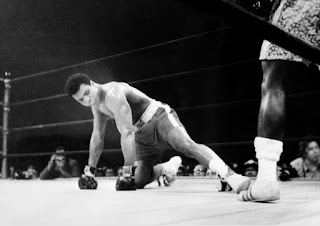This is the year that the rest of the world finally found out how exclusion and isolation feel for Black people. This year the police’s brutal suppression of Black citizens was met with a focused and purposeful wall of Black resistance. This has been the year that Black people finally realised the real strength of street knowledge. Black people came to the realisation that facing up to systemic discrimination cannot be successfully countered just by marches or any means necessary. Black people are now organising to question the workings of the system through political activism and engagement. They are working on changing the narrative on how law enforcement and policing needs to start meeting the demands of future community safety requirements. The year Nigerians decided that being policed by force had to stop. The year we painfully said rest in power to the Black Panther; Chadwick Boseman. My heart is still heavy from the loss of the inimitable Bill Withers, resting comfortably in Grandma's Hands.
This is the year that a global pandemic has sneaked upon us and pretty much brought life as we know it to a standstill. Thanks to a chronic lack of awareness on the part of governments across the world opportunities were missed to contain covid-19 in 2019. The virus marched into 2020 and did what Napoleon and Hitler failed to do; literally conquered the world. This is the year in which the maxim, “better to be lucky than good” was turned on its head. Covid-19 has absolutely no regard for luck and those people who neglected to be good have come a cropper in no uncertain terms. This is the year that the British government went down an extremely wrong headed path of trying to engineer herd immunity in its populace. The UK has subsequently recorded over 80,000 excess deaths. It is the year that the lives of millions of Americans were placed in the hands of Jared Kushner resulting in over 300,000 deaths from covid-19 in America.
We all would like to believe that we are part of huge human family but this year the pandemic has shown us that when the chips are down people feel very little responsibility for the health and wellbeing of their neighbours or fellow citizens. There have been multiple instances of people profiteering, hoarding essential items and physically fighting to get their hands on what they might have considered to rapidly diminishing desired commodities. When simple safety measures could possibly save lives some people have been protesting against face coverings, lockdowns and social distancing.
This is the year when the expression “oven ready” had its poorly regarded reputation further sullied by the UK government’s increasingly fraught efforts to get the better of the EU in Brexit trade negotiations. The year when many Brexiteers started to realise that being a union of one can be very paralysing. Achieving Brexit is starting to feel somewhat like climbing to the top of Mount Everest and then having to be stretchered down to the base thanks to summit sickness. So this is the year that the United Kingdom quit the European Union to follow its dream of becoming a 1950s noir lone wolf.
This is year that democracy was put on red alert. It is no longer the strong rock everyone assumed it to be. Extreme right wing nationalism has stepped onto centre stage and will no longer stay hidden behind conservatism. A case is being made for autocracy and fascism and it is gaining mainstream followers. All of a sudden pushing back against globalism and multilateralism has become a rallying cry for a virulent wave of populism. Democracy has been shown to be flawed and the democrats are floundering.
With all that has happened this year it is worth pointing out that this year couldn’t stop itself ending. Now whether all the mess ends with this year will be down to everyone all over the world. There is no doubt going to be some tough times ahead but they don’t have to be as fatal as they have been this year. I don't think I have any resolutions for the new year but I do have one resolve; not to worry about the future and just let the future worry about contending with me.













